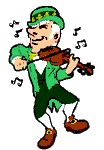
Scansion Of "Under Ben Bulben"
The following is a breakdown of the physical part of the poem. This includes the syllables that are emphasized when reading the poem, indicated by highlights. Next to each line is a letter that represents the rhyme scheme of the poem.
I
Swear by what the Sages spoke
A
Round the Mareotic
Lake
B
That the Witch
of Atlas knew,
C
Spoke and set
the cocks a-crow.
D
Swear by those horsemen, by those women
A
Complexion and form
prove superhuman,
A
That pale, long-visaged
company
B
That airs an immortality
B
Completeness of
their passions won;
C
Now they ride
the wintry dawn
C
Where Ben
Bulben sets
the scene.
D
Here's the gist of what they mean. D
II
Many times man lives
and dies
A
Between his two
eternities,
A
That of race
and that of soul,
B
And ancient Ireland
knew it all.
B
Whether man dies
in his bed
C
Or the rifle knocks
him dead,
C
A brief parting
from those dear
D
Is the worst
man has to fear.
D
Though grave-diggers'
toil is long,
E
Sharp their spades,
their muscles strong.
E
They but thrust
their buried men
F
Back in the human
mind again.
F
III
You that Mitchel's prayer have heard,
A
'Send war
in our time, O Lord!'
A
Know that when all
words are said
B
And a man is fighting
mad,
B
Something drops
from eyes long blind,
C
He completes
his partial mind,
C
For an instant stands
at ease,
D
Laughs aloud,
his heart at peace.
D
Even the wisest
man grows tense
E
With some sort
of violence
E
Before he can accomplish
fate,
F
Know his work
or choose his mate.
F
IV
Poet and sculptor, do the work,
A
Nor let the modish
painter shirk
A
What his great
forefathers did.
B
Bring the soul
of man to God,
C
Make him fill
the cradles right.
D
Measurement began our might:
D
Forms a stark
Egyptian thought,
E
Forms that gentler
phidias wrought.
E
Michael Angelo left
a proof
F
On the Sistine
Chapel roof,
F
Where but half-awakened
Adam
G
Can disturb
globe-trotting Madam
G
Till her bowels
are in heat,
H
Proof that there's
a purpose set
H
Before the secret
working mind:
I
Profane perfection
of mankind.
I
Quattrocento put
in paint
J
On backgrounds for
a God or Saint
J
Gardens where
a soul's at ease;
K
Where everything
that meets the eye,
L
Flowers and grass
and cloudless sky,
L
Resemble forms
that are or seem
M
When sleepers wake
and yet still dream.
M
And when it's vanished
still declare,
N
With only bed
and bedstead there,
N
That heavens had opened.
Gyres run on;
O
When that greater
dream had gone
O
Calvert and Wilson,
Blake and Claude,
P
Prepared a rest
for the people of God,
P
Palmer's phrase,
but after that
Q
Confusion fell
upon our thought.
R
V
Irish poets, earn
your trade,
A
Sing whatever
is well made,
A
Scorn the sort
now growing up
B
All out of shape
from toe to top,
B
Their unremembering
hearts and heads
C
Base-born products
of base beds.
C
Sing the peasantry,
and then
D
Hard-riding
country gentlemen,
D
The holiness of monks,
and after
E
Porter-drinkers'
randy laughter;
E
Sing the lords
and ladies gay
F
That were beaten
into the clay
F
Through seven heroic
centuries;
G
Cast your mind
on other days
F
That we in coming
days may be
H
Still the indomitable
Irishry.
H
VI
Under bare Ben Bulben's
head
A
In Drumcliff churchyard
Yeats is laid.
B
An ancestor was rector
there
C
Long years ago,
a church stands near,
D
By the road
an ancient cross.
E
No marble, no conventional
phrase;
F
On limestone quarried
near the spot
G
By his command
these words are cut:
H
Cast
a cold eye
A
On life, on death.
B
Horseman, pass by!
A
Meter:
The basic meter of the poem is iambic tetrameter. There are only a couple deviations from this. The most significant, however, is line 8 of part I. Here, Yeats says, "that airs an immortality." Yeats draws attention to this line because it suggests the theme of the poem. This theme can be seen through references of reincarnation and the embodiment of immortality in the Horsemen. Another line that should be given special attention, is the last line of part V. This line reads, "still the indomitable Irishry." This line is used to describe the power of patriotism and the pride that Yeats has for his fellow countrymen and their accomplishments.
Rhyme:
The rhyme scheme of the poem is fairly simple. It remains relatively the same throughout the poem until the last part. Part VI does not have any particular rhyme scheme; in fact none of the lines rhyme. This suggests that Yeats is using prose to illicit a different attitude from the reader. This attitude reflects the message that Yeats concludes to the reader. It builds up to the epitaph that concludes the poem. The lack of rhyming suggests that Yeats is not trying to make a flowery exit, but to convey his message as though he was directly speaking to the reader.

Title Page The Poem Analysis Part I Analysis Part II Analysis Part III Analysis IV Analysis Part V Analysis VI Scansion Biography